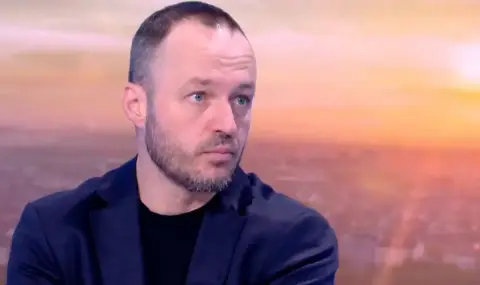Between 6 and 8 parties are normal to enter the parliament after the elections. Political scientist Stoycho Stoychev, head of the Laboratory for Electoral Systems and Technologies, made such a prediction to the BNR, based on voting attitudes and the electoral system.
"The majority will be based on three or four MPs in the National Assembly. If more parties enter, it means that the big ones will have fewer MPs.
It is possible that four parties will have to participate in order to form a majority, he also pointed out in the program "Above all".
"A broad party coalition should be able to produce a cabinet. The other question is for how long. To think about fulfilling full mandates is very wishful thinking.
In such an environment, it is necessary for the partnerships between the parties to be sustainable".
If we talk about an "equally distant prime minister", it means that the participants in this conversation have accepted the idea of a joint prime minister or a common government, explained Stoychev. "In my opinion, there will be no obstacles after the elections for GERB to adopt a similar one".
The political scientist outlined the profile of such a prime minister. "He will not be equally distant, but equally close to all who participate in the majority. This is a university professor who has had partnerships with both over the years and is on good terms with all of them. He cannot be equally distant, because if he is distant from four parties, it means that he is distant from politics and will not engage in such work.
If we assume that the core of such a majority will be GERB and PP-DB, this limits the circle of potential additional partners, explained Stoychev.
"The participation of "Revival" in such a thing is problematic. The same is the case with the APS and the DPS - New beginning. But they could support him without formally being in the cabinet. Something I expect to happen at best. Both party structures are in such a state that they should at least participate in government.
If it is looking at its own interest, the left-wing association must declare itself categorically as an alternative or opposition to this model. It is more likely that BSP will not participate in such a coalition.
Then there remain the smallest political entities, such as ITN and some of the new parties, which could cross the barrier – "Greatness", MECH and Blue Bulgaria".
Stoychev does not allow the possibility of PP and DB going on different paths when they enter the parliament.
"They have achieved the optimal option for their political representation in this form".
If there is any surprise, it will be related to the real popularity of Delyan Peevski, the political scientist also pointed out.
"In Sofia, it is not very popular, but in other regions of the country it is possible that it has some social base. The most curious question is whether he has managed to build over the years the kind of base of people who trust him as a politician and support him authentically.
But even if Peevski gets more votes than he is currently given, he would hardly be able to come in second place with a result similar to the united DPS in the previous elections.
